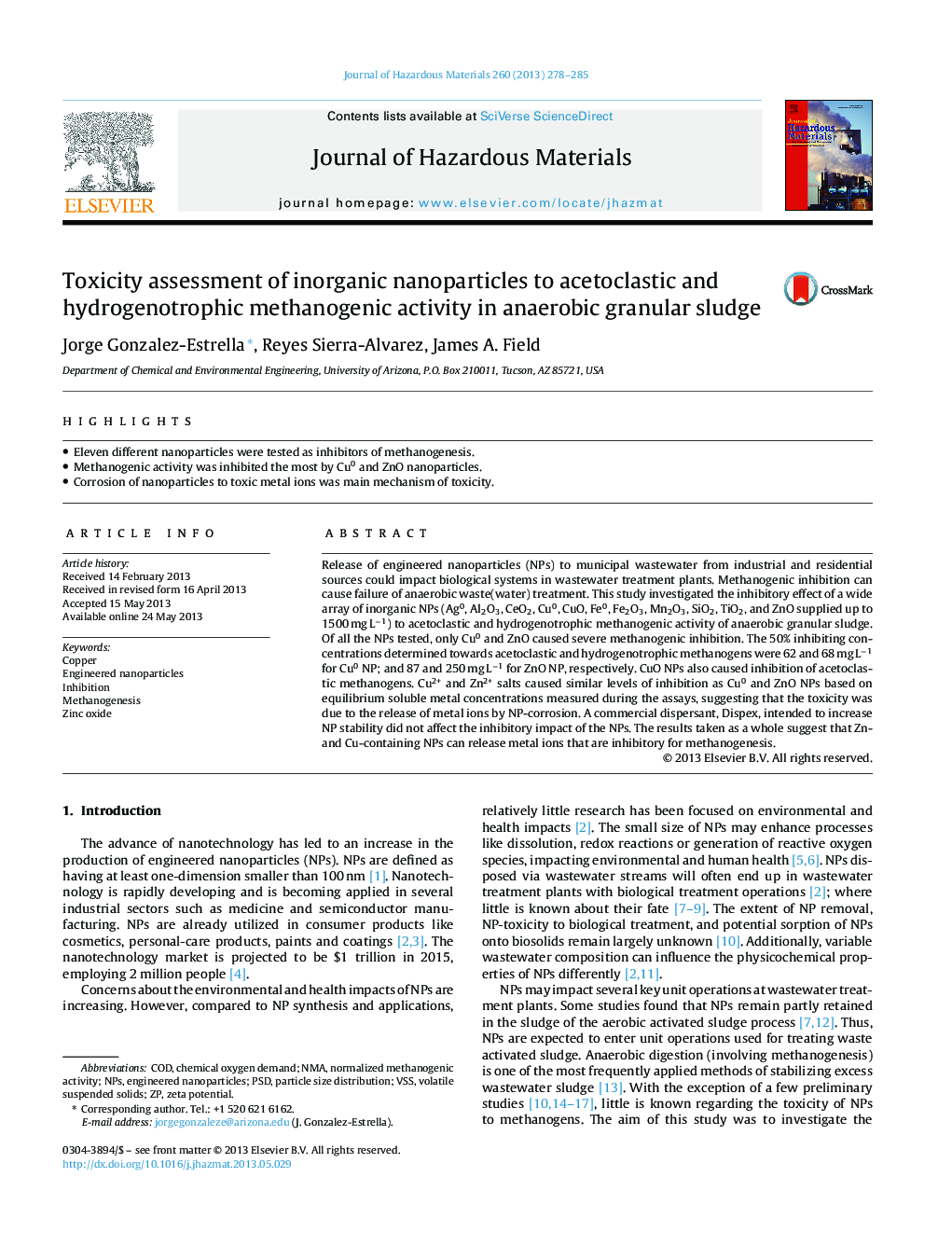| Article ID | Journal | Published Year | Pages | File Type |
|---|---|---|---|---|
| 6972385 | Journal of Hazardous Materials | 2013 | 8 Pages |
Abstract
Release of engineered nanoparticles (NPs) to municipal wastewater from industrial and residential sources could impact biological systems in wastewater treatment plants. Methanogenic inhibition can cause failure of anaerobic waste(water) treatment. This study investigated the inhibitory effect of a wide array of inorganic NPs (Ag0, Al2O3, CeO2, Cu0, CuO, Fe0, Fe2O3, Mn2O3, SiO2, TiO2, and ZnO supplied up to 1500 mg Lâ1) to acetoclastic and hydrogenotrophic methanogenic activity of anaerobic granular sludge. Of all the NPs tested, only Cu0 and ZnO caused severe methanogenic inhibition. The 50% inhibiting concentrations determined towards acetoclastic and hydrogenotrophic methanogens were 62 and 68 mg Lâ1 for Cu0 NP; and 87 and 250 mg Lâ1 for ZnO NP, respectively. CuO NPs also caused inhibition of acetoclastic methanogens. Cu2+ and Zn2+ salts caused similar levels of inhibition as Cu0 and ZnO NPs based on equilibrium soluble metal concentrations measured during the assays, suggesting that the toxicity was due to the release of metal ions by NP-corrosion. A commercial dispersant, Dispex, intended to increase NP stability did not affect the inhibitory impact of the NPs. The results taken as a whole suggest that Zn- and Cu-containing NPs can release metal ions that are inhibitory for methanogenesis.
Keywords
Related Topics
Physical Sciences and Engineering
Chemical Engineering
Chemical Health and Safety
Authors
Jorge Gonzalez-Estrella, Reyes Sierra-Alvarez, James A. Field,
